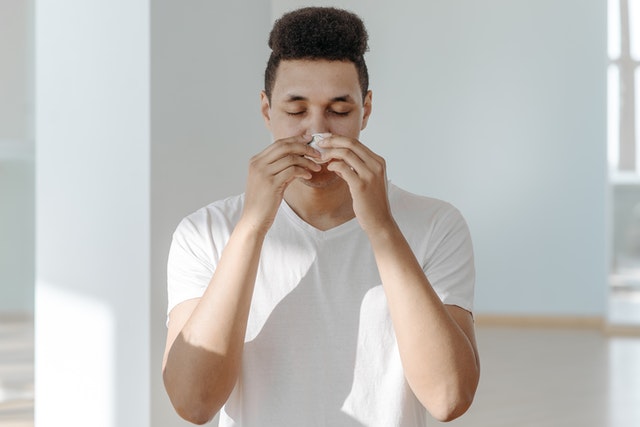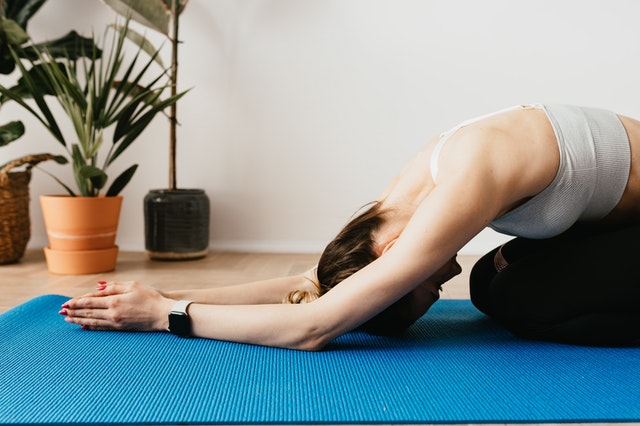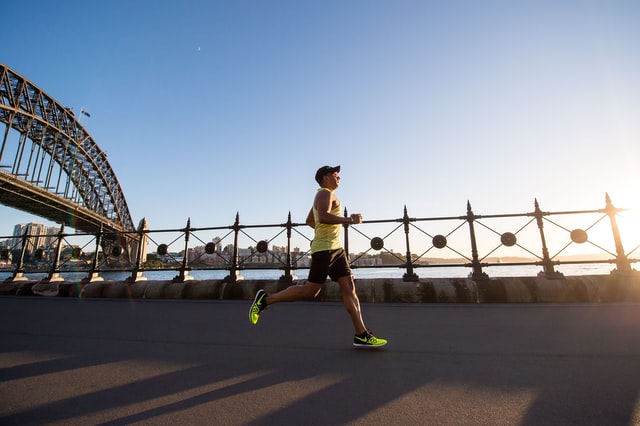For serious athletes and avid fitness enthusiasts, even just one day of unexpectedly missing their training may feel like a hindrance to their progress. While proper nutrition and regular exercise boost the immune system, there’s always a chance of contracting an illness. In cases when symptoms are mild, and you don’t feel the need to stay in bed, is it safe to continue exercising while sick?
In this blog, let’s dive into the recommended guidelines for exercising while sick. We’ll also discuss exercises that are safe to do while sick, and which exercises to avoid.
Is Exercising While Sick Safe to Do?
In general, doctors follow two main rules when it comes to exercising while sick. The first is the “above the neck” rule. This means that if the symptoms are felt above the neck — such as a cough, sore throat, or irritated eyes — it’s likely okay for you to exercise. But if the symptoms are below the neck — like an upset stomach, diarrhea, body aches or pain, or fever — then you should probably skip on strenuous activities and rest up.
The second rule is “patient knows best.” The severity of an illness differs from case to case depending on a person’s lifestyle and immunity. So, you must listen to your body and exercise self-awareness. Provided that the symptoms are mild and manageable, you may likely continue working out. Some may have the strength to go for a run despite sniffling from a common cold. But others may have difficulty breathing, find that their symptoms have worsened after exerting themselves, or feel generally unwell and unable to get out of bed. If your body says no, then it’s best that you listen.

Exercises that are Safe to Do When Sick
Even if you are capable of exercising while sick, keep in mind that you’re still not in your best health, so proceed with caution and be kind to yourself. These are some exercises that are most likely suitable for those who are feeling less than their best but still want to get a quick workout in.
Walking or Jogging
If you’re suffering from cold symptoms or clogged sinuses, some mild cardio may help open up the airways by stimulating deep breaths. Running is considered a natural decongestant. But if your symptoms make it more difficult to breathe than usual, go for a 30-minute brisk walk or light jog instead.
Additionally, be mindful of external factors that may aggravate your symptoms. For example, it might not be a good idea to go for a walk during the winter season if you’re battling a cough or cold. The low temperatures may worsen your symptoms. Similarly, if you frequently jog around the neighborhood, dress appropriately for the weather, as dry air or high pollen levels may further irritate the nasal tracts.
Dance
Great news for those who need a pick-me-up: Research has shown that dancing can aid in coping with stress and stimulate motivation. If you’re unwell but not infectious, consider a local dance class! But if you’re potentially infectious and uncomfortable with wearing a mask while dancing, there are many resources available online, such as tutorial videos, follow-along dance videos, and even the Just Dance video game.
Yoga
Yoga is a low-impact exercise that stimulates the muscles. It builds strength and increases heart rate without overexerting the respiratory system or putting much stress on the joints. This makes it suitable for those suffering from a stuffy nose, sore throat, or mild body soreness. Gentle stretches may help reduce body aches and stiffness that often come with the common cold. If you don’t feel well enough for lunges or binds, focus on restorative poses. This includes the child’s pose, supine twist, or supported bridge. Additionally, consider humming while you meditate or flow through the poses. A 2002 study found it to be “an extremely effective means of increasing sinus ventilation.”

Exercises You Should Avoid When Sick
While you might be only mildly sick and feel capable of exercising, it’s advisable to avoid these strenuous activities:
Weightlifting
Even if you’re just battling a common cold, your physical strength will likely decline. Your athletic performance will also be compromised. It’s best to skip the weights until you’re back to full health, as you risk injuring yourself if you overexert your muscles while sick. Furthermore, straining your muscles might only make you feel worse if you’re unable to engage in active recovery, and DOMS (delayed onset muscle soreness) sets in.
If you’re capable of exercising while sick and absolutely feel the need to include strength training, go for low-impact bodyweight exercises and add dumbbells for that extra challenge.
Team Sports
Many mild illnesses, such as the common cold and flu, are highly transmittable through water droplets in the air. They’re released through coughing, sneezing, talking, and breathing. They can also be passed on through physical touch if an infected person doesn’t sanitize their hands properly. For example, if a person with a cold plays basketball, wipes their nose, then passes the ball, they risk infecting everyone who touches the ball after them.
Those who engage in close contact sports are highly susceptible to transmittable diseases. This was demonstrated during the 2010 norovirus outbreak affecting 13 NBA teams. If you have an infectious illness, even if your symptoms are mild, and you are physically capable of exercising, it’s best to stay home to avoid infecting other people.
Marathon Running
It’s best to not push your body when it’s not operating at 100% capacity. Aside from potentially aggravating your symptoms, prolonged and continuous exercise can further compromise your immune system. A 2007 study found that prolonged sessions of strenuous exercises, about 1.5 hours or longer, can cause a temporary decline in certain immune functions for up to 24 hours post-exercise.

Things To Know When Exercising While Sick
Are you confident that you can safely exercise while sick? Keep these health tips in mind to help prevent the further spread of illness:
-If you have a sore throat, cough, or cold, carry a towel to cover your face when you cough/sneeze.
-If you’ll be going to a gym or class, wipe down every object and surface you touch with disinfectant. This includes gym machines, water coolers, and lockers. Your gym likely provides this. If not, bring your own.
-Bring rubbing alcohol or alcohol-based hand sanitizer to regularly sanitize your hands and the things you’ve touched. You might be surprised to learn about the germiest places you touch.
–Wash your hands regularly and correctly, particularly before and after using the restroom, and before and after coming in physical contact with other people.













